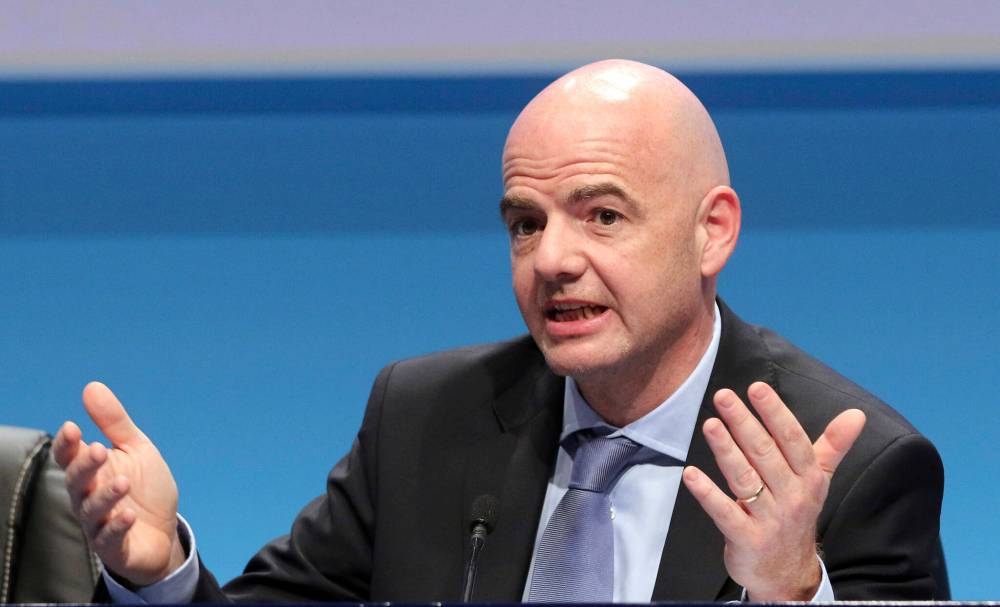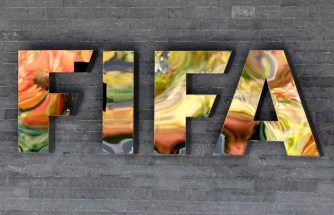‘Beautiful game’ shows its ugly side yet again
Read this article for free:
or
Already have an account? Log in here »
To continue reading, please subscribe:
Monthly Digital Subscription
$0 for the first 4 weeks*
- Enjoy unlimited reading on winnipegfreepress.com
- Read the E-Edition, our digital replica newspaper
- Access News Break, our award-winning app
- Play interactive puzzles
*No charge for 4 weeks then price increases to the regular rate of $19.00 plus GST every four weeks. Offer available to new and qualified returning subscribers only. Cancel any time.
Monthly Digital Subscription
$4.75/week*
- Enjoy unlimited reading on winnipegfreepress.com
- Read the E-Edition, our digital replica newspaper
- Access News Break, our award-winning app
- Play interactive puzzles
*Billed as $19 plus GST every four weeks. Cancel any time.
To continue reading, please subscribe:
Add Free Press access to your Brandon Sun subscription for only an additional
$1 for the first 4 weeks*
*Your next subscription payment will increase by $1.00 and you will be charged $16.99 plus GST for four weeks. After four weeks, your payment will increase to $23.99 plus GST every four weeks.
Read unlimited articles for free today:
or
Already have an account? Log in here »
Hey there, time traveller!
This article was published 23/11/2022 (1110 days ago), so information in it may no longer be current.
Capt. Louis Renault, the morally flexible fictional police prefect in the movie Casablanca, would feel right at home at the FIFA World Cup in Qatar.
One could imagine Capt. Renault shouting, “I’m shocked — shocked! — to find that corruption and intolerance are going on here,” while slyly pocketing his portion of the take from soccer’s grandest event, which began Nov. 20 in Doha, Qatar’s capital city.
FIFA, the Fédération Internationale de Football Association, along with its president, Gianni Infantino, hold an iron grip on “the beautiful game” and its high-profile and lucrative tournaments. FIFA is one of the world’s most slippery organizations, and its president certainly ranks among sport’s most loathsome executives.

Journalists have linked FIFA’s leadership with corruption, bribery and vote-rigging in the awarding of its men’s World Cup tournaments. The 2018 event provided a showcase for Russia and its leader, Vladimir Putin, which in hindsight seems reminiscent of how the Olympics were turned into a propaganda tool for Nazi Germany in 1936.
Even more eyebrows were raised in December 2010 when FIFA chose Qatar to host the 2022 event. The Persian Gulf emirate has never qualified for the World Cup, and had no suitable stadiums built when it applied to host the games.
Now that the tournament has begun, eyes around the world are finally opening to the human cost of letting Qatar host: the deaths of about 6,500 of the migrant workers brought in as essentially slave labour to build the soccer stadiums and other infrastructure, a number the Qatari government continues to deny.
Also apparent are Qatar’s systemic discrimination against women, strict laws against homosexuality and intolerance of LGBTTQ+ people, even if they are among the expected 1.2 million visitors bringing their tourist dollars to Qatar for the World Cup.
Soccer players wear armbands to signify the team captain, and several countries were planning on their captains wearing rainbow-coloured “One Love” bands to support LGBTTQ+ fans and their demand for equality.
FIFA tut-tutted on behalf of its Qatari bankrollers, and told those nations there was no love for their One Love armbands. Facing on-field sanctions, including an automatic yellow card to players for wearing them, the countries’ soccer federations folded like the cheap tents that are serving as the paltry accommodations for many World Cup attendees.
It was hardly a shocking decision, especially after Mr. Infantino accused countries critical of Qatar and its treatment of migrant workers of being hypocritical and racist.
Some have suggested, and many are following through on, protesting by not watching any of the 64 World Cup games that are being televised live around the world.
That’s easy for those who aren’t football devotees, but it’s a steep sacrifice for the sport’s most ardent fans — including those in Canada, which has qualified for the tournament for the first time since 1986.

A better strategy for those who appreciate the game but wish to denounce its darker side might be to apply pressure on sponsors of FIFA and national soccer federations — an approach that certainly impacted Hockey Canada, which mishandled allegations of sexual misconduct by some of its junior players and subsequently lost almost all its corporate backing.
Rewe, a German grocery chain that has sponsored that country’s national soccer federation for 14 years, ended its association on Nov. 22 after FIFA disallowed the One Love armband. The company’s head said FIFA’s “scandalous attitude is absolutely unacceptable.”
If FIFA were to face significant bottom-line stress, maybe then it would do what it does best — follow the money — and award its events to hosts that strive for more diverse and humane ideals.














